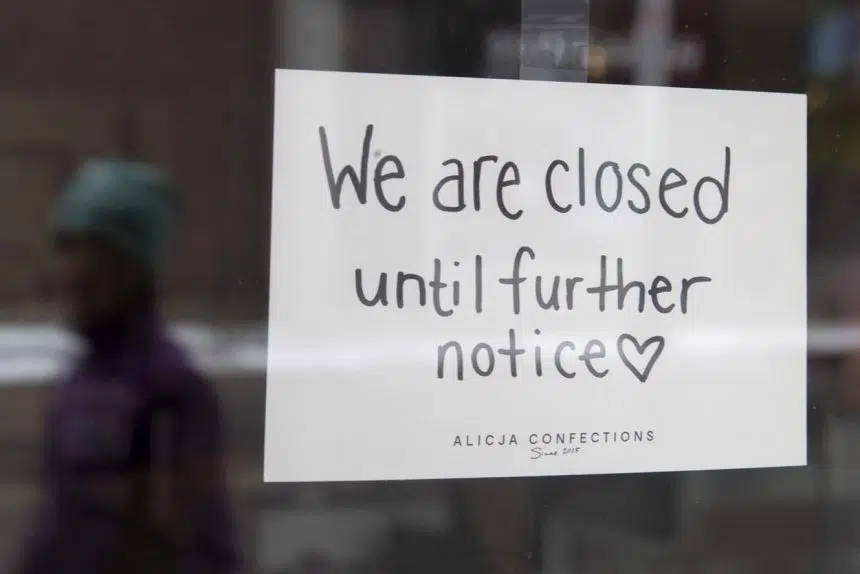As COVID cases continue to climb, both in Saskatchewan and across many parts of the country, businesses are worried that lockdowns could happen once again.
Marilyn Braun-Pollon, the vice president of prairie and agri-business with the Canadian Federation of Independent Business (CFIB), believes that even though new restrictions in the province have been limited to nightclubs in Saskatoon, many more businesses are being affected.
In the arts and recreation industry, as well as the hospitality industry, businesses were 76 per cent likely to report that sales are down because of the fear of a second wave.
“One of the top concerns of small businesses is the uncertainty around a second wave. About 78 per cent of firms are worried about the impact of a second wave, including either new rounds of closures or restrictions on business activities,” Braun-Pollon said.
She pointed to our neighbours to the east as an example.
“We don’t need to look too far to see the devastating impact of a second wave in Manitoba,” she said.
As of Monday, that province had 3,455 active cases of the virus. Numbers like that prompted the government to put sweeping restrictions in place. Throughout the entire province, public gatherings are limited to five people, capacity at restaurants and bars has been lowered to 50 per cent, and there are some changes to sports and recreation facilities.
The restrictions are even stricter in Winnipeg, where the test positivity rate is nearly 10 per cent.
In that city, bars and restaurants are closed except for takeout and delivery, movie theatres and concert halls are completely closed and most retail stores have an in-store limit of five people or 25 per cent of capacity, just to name a few.
Those sorts of measures are something Braun-Pollon hopes not to see happen in Saskatchewan.
“While we know small businesses are working hard to keep their staff and customers safe each day, we also know we all have a role to play to keep the cases low in Saskatchewan — by everyone respecting and following the public health guidelines and the advice of our chief medical officer on what it will take to keep us safe,” she said.
However, if there is no other option, she still believes the government has a role to play in supporting business.
“If there are further restrictions introduced, we’re going to need to make sure we have strong and immediate economic supports in place for those sectors that are hit … A second wave is likely to have widespread effects on the economy. What we’re saying is if there are further restrictions here in Saskatchewan, (businesses) are going to need all the support they can get,” she explained.
To do that, she’s encouraging the government to take on a host of measures, including:
- Providing a top-up to 90 per cent for the Canada Emergency Wage Subsidy (CEWS) for firms subject to additional COVID-19 related closures as is planned for the rent subsidy
- Immediately delivering on promised expansion of the Canada Emergency Business Account (CEBA) loan program by $20,000 with an extra $10,000 forgivable portion
- Immediately delivering on the new Canada Emergency Rent Subsidy (CERS), ensuring all firms subject to additional COVID-19 related full or partial closures can access the top-up to 90 per cent
- Ensuring new businesses started in 2020 can access all the major government support programs, including CEBA, CEWS and CERS
- Delivering retroactive rent support to those firms whose landlords refused to participate in the Canada Emergency Commercial Rent Assistance (CECRA) from April to September
- Sharing all evidence from provincial health authorities that have led to decisions related to additional business closures
- Announcing additional provincial supports for all firms subject to new closures
Eighteen per cent of small businesses in Saskatchewan are planning to either declare bankruptcy or wind down operations. Sixty per cent said they couldn’t easily survive a second wave of shutdowns.
“This has been an extremely challenging eight months. The road to recovery has been slow and there is a long road ahead as well,” Braun-Pollon concluded.







